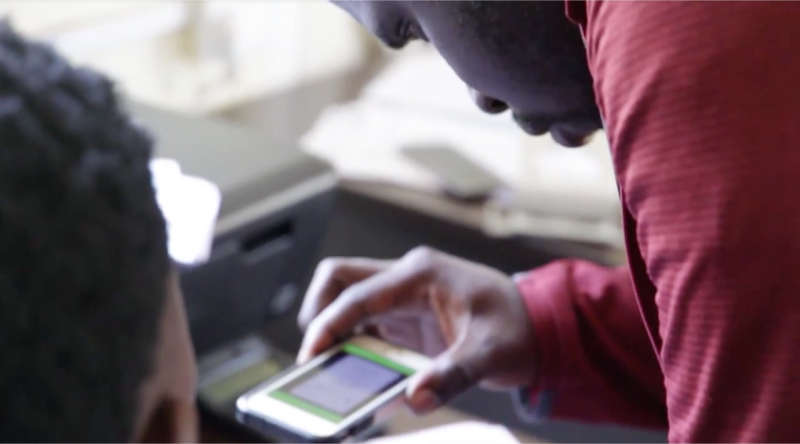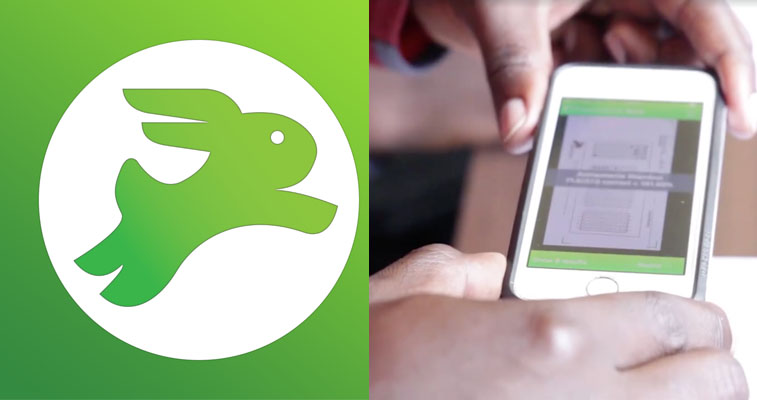
Isaac Van Wesep and Walter Duncan are two longtime friends who first met in college. Both men have taken two distinct career paths: Duncan is a 15-year veteran English teacher who has taught across the country and Van Wesep has worked with various investment firms and startups in the Greater Boston area.
Duncan was teaching at the South Shore Charter Public School in Norwell, and started noticing how legacy assessment tools and platforms, such as Scantron, were not as effective as they used to be. In addition to these observations, he also thought about how developing technology could help teachers in the classroom.

“How am I going to improve my students’ outcomes without the proper tools and resources,” Duncan asked. “I noticed how much we can accomplish on a smartphone and thought, ‘How can I grade the many different types of assessments required to improve student's outcomes with pocket sized mobile technology like my smart phone?’ Going back and forth to a Scantron machine that is on its last legs, and doesn't even give me the data I sorely need is too inefficient when it can all be done on a phone in an instant.”
Duncan started discussing his ideas with his old college friend and the latter began outlining ideas for school districts and began developing a prototype application. In 2012, they decided to take the plunge and start an EdTech company together: Quick Key.
The Quick Key app initially started out as a platform to grade standardized tests and quizzes. Teachers will open the app and, using the phone’s camera, scan over the tests to check

answers. After a prototype of the app went viral when one of Duncan’s students shared it on Reddit, teachers from across the country and the world began voicing their ideas for Quick Key. With this abundance of information from teachers who shared similar struggles to Duncan, Quick Key began to implement other features. Last Summer, Paul Hiatt joined the company as Quick Key’s Head of Development, began to work on rounding out Quick Key’s new features, based on suggestions from other teachers.
Van Wesep describes Quick Key as having evolved into the “iTunes for rapid assessments.”
“The goal is to make something that is accessible to anybody,” Van Wesep says. “We wanted to create an application designed to be as easy to use for teachers on-the-go as it is effective for district and school leaders.”

There are four main features making up Quick Key today. Along with the ability to grade all types of quizzes, tests, and essays from your phone, teachers can create quizzes and grade other class assessments in the app itself. Quick Key can be integrated with Google, and teachers can use those features to enhance their experiences with Quick Key. The newest feature of Quick Key is the ability to share content through a P2P system. Teachers can share questionnaires and assignments through the app.

“Quick Key was also designed for classrooms of the future,” says Duncan. “Districts, schools and teachers can import or create assessments in Quick Key for students to take on any Chromebook, laptop, tablet, or mobile device.”

A year after the company’s founding, a successful Kickstarter campaign followed; the company raised over $20,000. “An interesting aspect of our campaign is we were the first professional productivity application to not only be on Kickstarter but also be successfully funded,” Van Wesep says.
Quick Key’s crowdfunding success caught the attention of both investors and the company’s future VP Sales, Shawn Rosenberger. Rosenberger joined the team in 2015 and brings with him EdTech sales experience. Throughout 2015 and 2016, the company started gaining traction with customers, and schools across the world started to use their app.
Quick Key has been collaborating with other EdTech startups around the Boston tech scene, as well as some companies from LearnLaunch. “There aren’t many accelerators like LearnLaunch around the country,” says Van Wesep. “What they’re doing is very important because education, and especially education technology, is always evolving.”
The company is looking to do a soft launch of their new features just in time for the school year in early September. “School leaders have asked us to make organization wide data simple to access and easy to act on, whilst teachers request more solutions that work for them, without making more work,” says Duncan. “With our September feature releases, I think we will continue hit the mark on both of these fronts.”
Colin Barry is a contributor to VentureFizz. Follow him on Twitter @ColinKrash.


